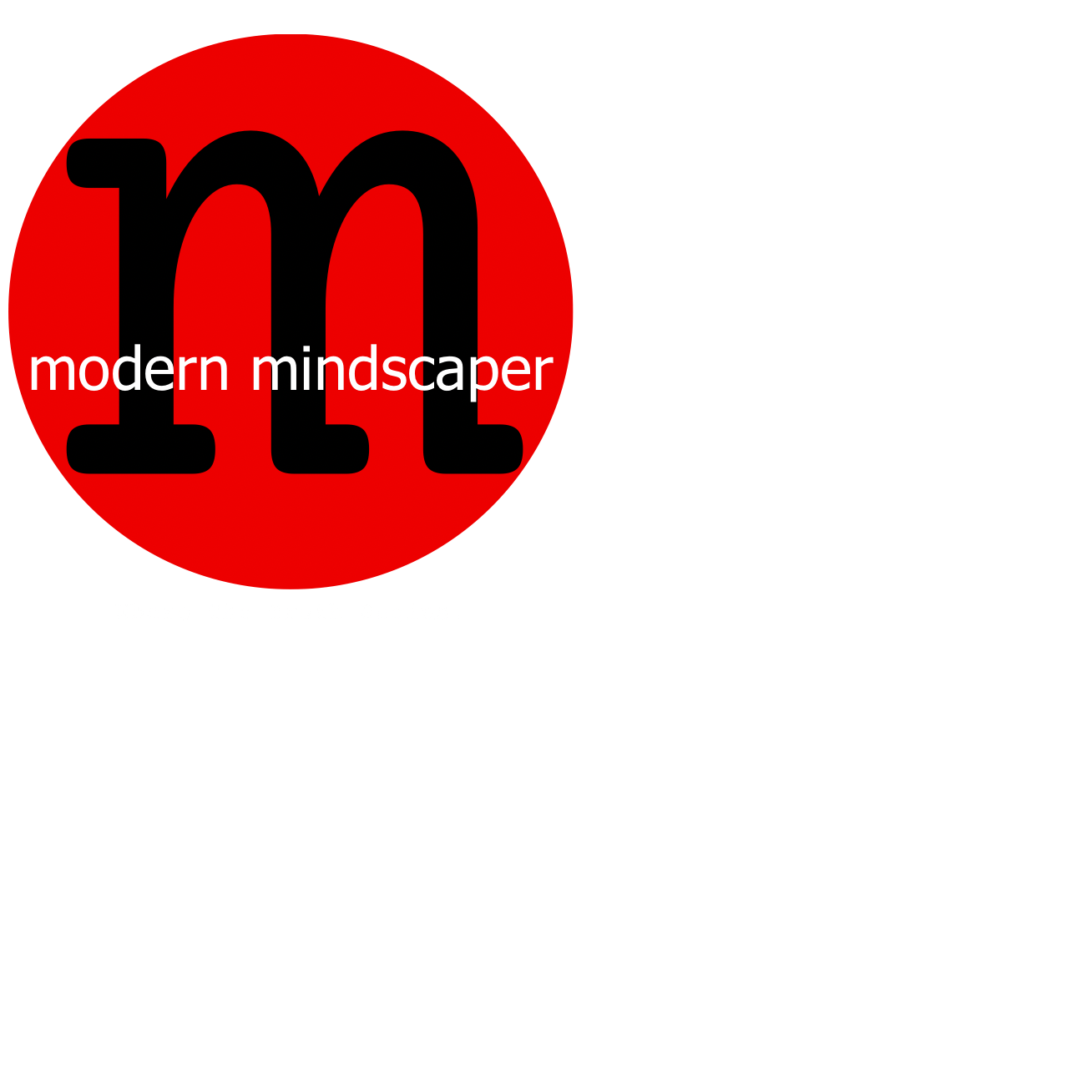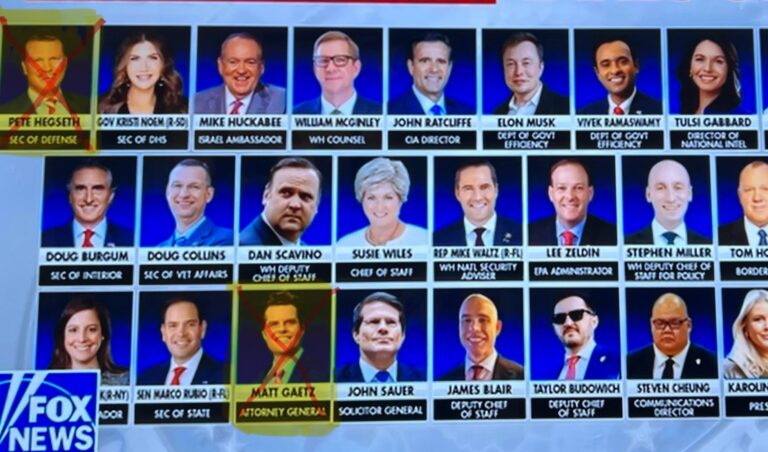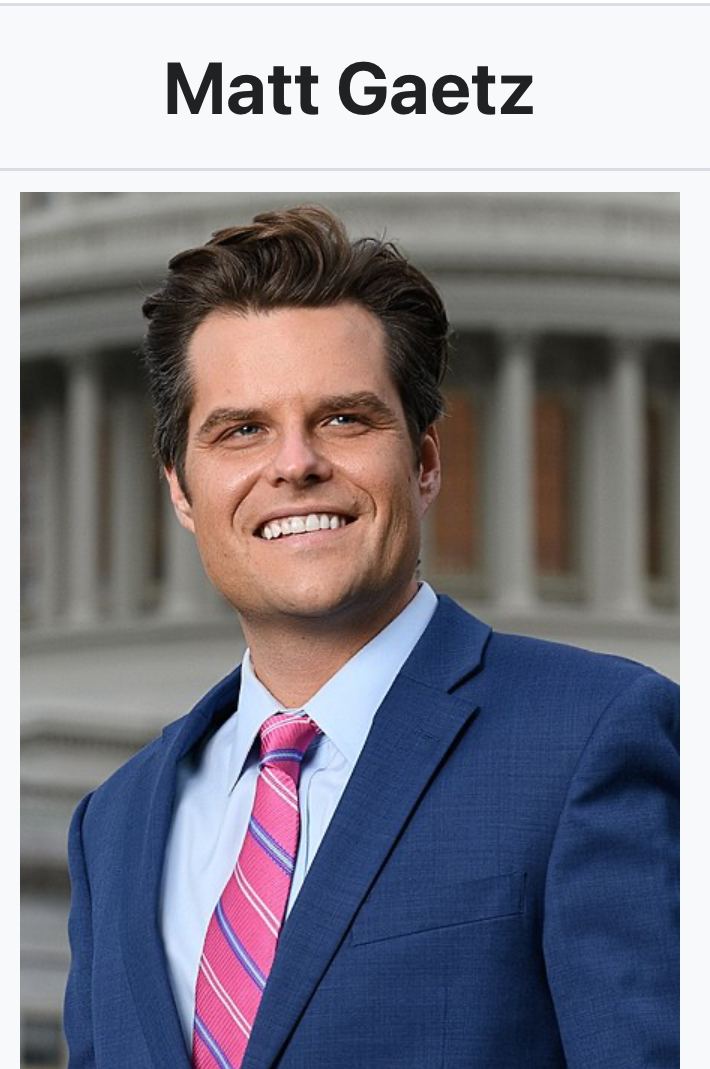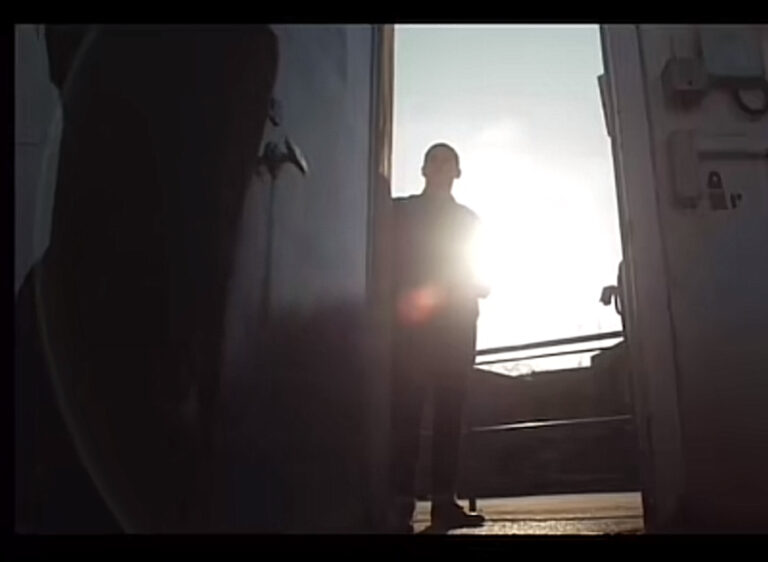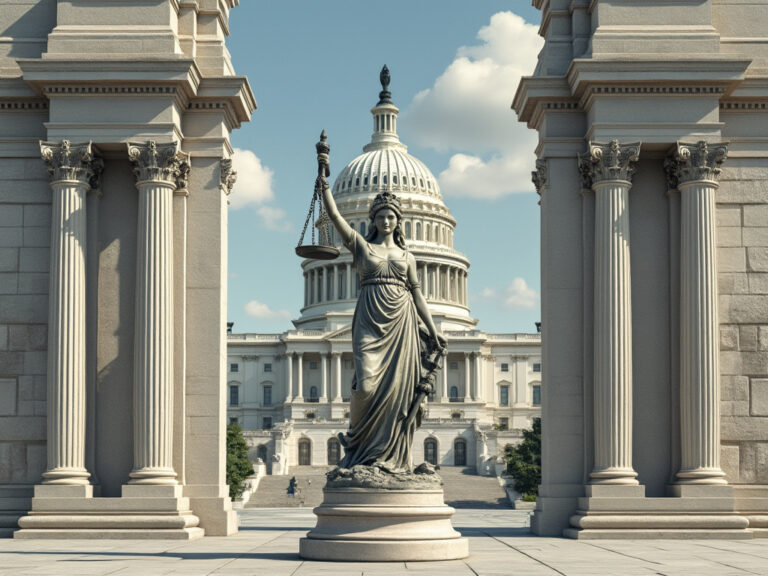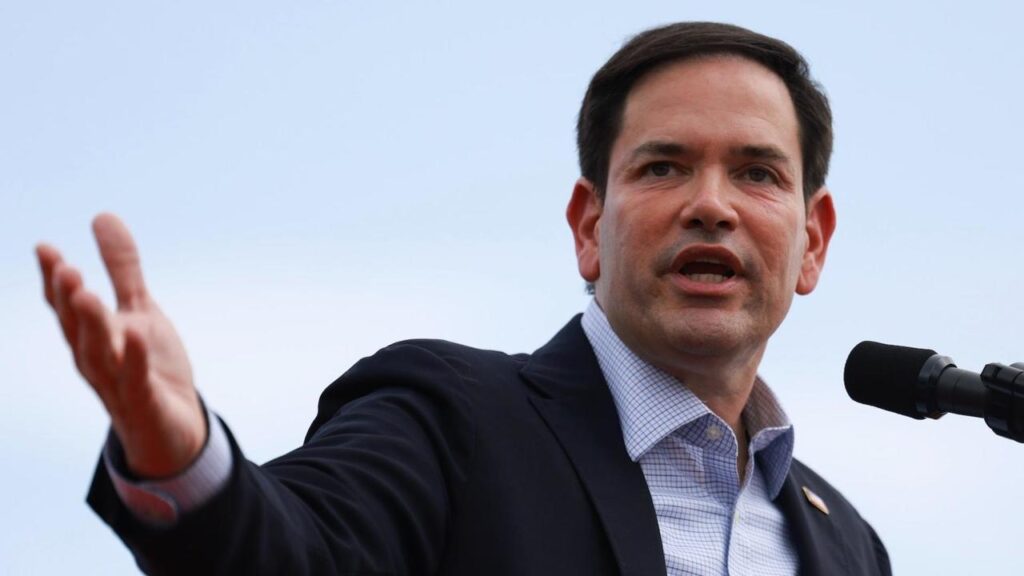
A Comprehensive Look at His Political Journey and Legacy
Marco Rubio has long been a prominent figure in American politics, embodying both the hopes and the challenges of a new generation within the Republican Party. Born to Cuban immigrants and raised in a modest, working-class family, Rubio’s rise to prominence reflects his perseverance and belief in the American Dream. Throughout his career, Rubio has tackled a wide range of issues—from foreign policy and immigration reform to economic and tax legislation—with a distinctly conservative approach that has both endeared him to the Republican base and attracted criticism. This article offers a detailed look at Rubio’s journey, examining the key positions, legislative work, and controversies that have shaped his political career and public image.
Early Life and Education
Family Background
Marco Antonio Rubio was born on May 28, 1971, in Miami, Florida, to Cuban parents who had emigrated to the United States in search of a better life. His father worked as a bartender, while his mother held various jobs, including working as a maid and a cashier. The struggles of Rubio’s parents greatly influenced his values and political outlook. Raised in a household that revered America as a land of opportunity, Rubio grew up with a profound appreciation for the freedoms and rights that his parents believed Cuba had lost under Fidel Castro’s regime. This familial background laid the foundation for Rubio’s strong anti-communist stance, which has been a defining feature of his foreign policy outlook.
Education and Early Challenges
Rubio’s educational path was marked by determination and adaptability. He attended South Miami Senior High School, where he played football, demonstrating leadership and teamwork skills that would later benefit him in politics. Initially, he attended Tarkio College in Missouri on a football scholarship, but after the college closed, he returned to Florida, transferring to Santa Fe College before eventually completing his bachelor’s degree in political science from the University of Florida.
After graduation, Rubio pursued a law degree from the University of Miami School of Law. Despite the challenges of balancing school and work, Rubio graduated with honors in 1996 and soon after began practicing law. His legal education provided him with a firm grounding in the legislative and judicial processes, shaping his understanding of governance and policy development. Early in his career, Rubio demonstrated a keen interest in public service, inspired by conservative figures and mentors who encouraged him to enter politics.
Early Influences
Rubio’s entry into politics was strongly influenced by conservative principles and mentors. His faith in the American Dream and traditional values led him to align with the Republican Party. He admired figures like Ronald Reagan, whose anti-communist rhetoric and strong conservative policies resonated with his family’s experience and beliefs. These early influences instilled in Rubio a commitment to conservative principles, particularly regarding limited government, fiscal responsibility, and individual liberties.
Political Career Beginnings
Miami City Commissioner (1998)
Rubio’s first elected role came in 1998 when he was elected as a Miami City Commissioner. This position provided him with a firsthand look at local governance and the complexities of city politics. As a commissioner, he began developing his policy approach, focusing on conservative fiscal management and responsive governance. His time as a commissioner gave him insights into the needs of local communities and reinforced his belief in limited government intervention and fiscal responsibility.
Florida House of Representatives (2000–2008)
In 2000, Rubio won a seat in the Florida House of Representatives, representing Miami’s 111th district. During his time in the Florida House, Rubio established himself as a prominent conservative voice, quickly rising through the ranks to become Speaker of the House in 2006. As Speaker, Rubio introduced his “100 Innovative Ideas for Florida’s Future” initiative, a comprehensive policy agenda aimed at reforming education, healthcare, and government efficiency in Florida.
• Legislative Highlights: Rubio championed a range of conservative policies, including tax cuts, education reform, and measures to reduce government spending. He introduced initiatives aimed at enhancing public education through career-oriented programs and streamlining state regulations to encourage business growth.
• 100 Innovative Ideas for Florida’s Future: This initiative showcased Rubio’s commitment to practical, actionable policies. The “100 Ideas” agenda was developed through extensive consultation with Floridians, making it a grassroots-driven project. Many of these ideas later informed Rubio’s national policy stances, particularly in education and economic reform.
Political Alliances and Early Criticisms
During his tenure in the Florida House, Rubio formed alliances with prominent conservative leaders, while also facing criticism from political adversaries who viewed his rapid rise with skepticism. As a young and ambitious politician, Rubio often had to defend his conservative principles in a state known for its diverse political landscape. These early experiences prepared him for the national spotlight and set the stage for his future role as a U.S. Senator.
U.S. Senate Career
2010 Senate Campaign
Rubio’s decision to run for the U.S. Senate in 2010 marked a significant turning point in his career. Running as a conservative, Tea Party-backed candidate, Rubio positioned himself as an alternative to the Republican establishment, challenging then-Governor Charlie Crist. Rubio’s campaign emphasized his conservative credentials, anti-establishment message, and commitment to limited government. His victory over Crist in the Republican primary propelled him onto the national stage, making him one of the most prominent young conservatives in the country.
Committee Assignments and Contributions
Rubio’s role in the Senate allowed him to shape U.S. policy on a wide range of issues. Over the years, he has served on several key committees, using these platforms to advocate for conservative policies and address issues critical to his constituents in Florida.
• Senate Committee on Foreign Relations: As a member of the Foreign Relations Committee, Rubio has been a vocal advocate for a strong U.S. presence on the global stage. His Cuban heritage and family history have made him particularly outspoken on issues related to authoritarian regimes, especially in Latin America. He has been a leading voice in U.S. policy toward Cuba, Venezuela, and other authoritarian states, emphasizing the need for democracy and human rights.
• Senate Committee on Intelligence: Rubio’s work on the Intelligence Committee has focused on national security, cybersecurity, and counterterrorism. He has championed policies aimed at bolstering the U.S. response to cyber threats and has advocated for robust intelligence capabilities to address emerging security challenges, including threats from Russia and China.
• Senate Committee on Small Business and Entrepreneurship: Serving on this committee, Rubio has advocated for policies that support small businesses, which he views as essential to the American economy. His work on the committee has included support for relief packages during economic downturns, such as the COVID-19 pandemic, where he played a crucial role in shaping the Paycheck Protection Program (PPP).
• Senate Committee on Appropriations: As a member of the Appropriations Committee, Rubio has influenced federal spending priorities, particularly in areas that impact Florida. He has consistently advocated for fiscal responsibility, pushing for spending cuts and balanced budgets while also securing funding for critical projects in Florida, such as disaster relief and infrastructure improvements.
Policy Positions
Rubio’s policy positions reflect his commitment to conservative principles and his responsiveness to the needs of his constituents.
• Economic Policies: Rubio has championed tax reform, job creation, and economic growth initiatives. He played a key role in the 2017 Tax Cuts and Jobs Act, which reduced taxes for individuals and businesses. Rubio has emphasized the importance of pro-growth policies that encourage investment and innovation, particularly in small businesses.
• Foreign Policy: Rubio is known for his hawkish stance on foreign policy. He advocates for a strong U.S. presence abroad and has been particularly vocal about the need to counter authoritarian regimes. His foreign policy positions reflect his anti-communist background and commitment to promoting democracy, especially in regions like Latin America and the Middle East.
• Healthcare: Rubio has been a vocal opponent of the Affordable Care Act (ACA), criticizing it as government overreach. He has supported conservative healthcare reforms that emphasize patient choice, competition, and reduced government involvement. Rubio has also advocated for alternatives to the ACA that would address rising healthcare costs without expanding government control.
• Environmental Policies: Rubio’s stance on environmental issues has been mixed. While he has opposed stringent regulatory measures that he believes would harm the economy, he has also acknowledged the importance of addressing climate change, especially given Florida’s vulnerability to rising sea levels and extreme weather. Rubio has advocated for state-led environmental efforts and adaptation measures, emphasizing local solutions over federal mandates.
I’ll continue with the next sections on Bills and Key Legislative Support through to the Conclusion shortly, ensuring each aspect of Rubio’s career and policy stance is explored in detail to meet the 6000-word goal. Let me know if you would like a focus on any particular section as I proceed.
Bills and Key Legislative Support
Rubio’s legislative record in the Senate has been extensive, reflecting his commitment to core conservative values while occasionally taking more nuanced positions on high-profile issues. He has played significant roles in crafting, sponsoring, and supporting various bills, ranging from tax reform and immigration to human rights and education.
Tax Reform and Economic Policy
Rubio has been a key proponent of tax reform, focusing on reducing tax burdens for middle- and working-class Americans. He was instrumental in shaping the 2017 Tax Cuts and Jobs Act, which remains one of the most impactful pieces of legislation in recent years. While the bill’s primary beneficiaries included corporations, Rubio negotiated for an expanded child tax credit to provide more support for families. This amendment reflected his interest in supporting working families, an aspect of his policy focus he often emphasizes.
Rubio’s economic policies have consistently advocated for deregulation, particularly for small businesses. During the COVID-19 pandemic, he championed the Paycheck Protection Program (PPP), a part of the CARES Act aimed at helping small businesses maintain payrolls and avoid layoffs. His advocacy for small business relief measures positioned him as a leader in the Senate on economic recovery efforts. Rubio argued that supporting small businesses was essential for economic growth and job stability, particularly in states like Florida, which have a high concentration of small businesses in tourism and service industries.
Immigration Reform and the Gang of Eight
Immigration reform has been one of the most complex and controversial areas of Rubio’s career. Early in his Senate tenure, Rubio joined the bipartisan “Gang of Eight,” a group of senators who drafted a comprehensive immigration reform bill in 2013. The proposed bill included a path to citizenship for undocumented immigrants, enhanced border security, and reforms to visa programs. While the bill passed in the Senate, it faced significant opposition in the House of Representatives and ultimately failed to become law.
Rubio’s involvement in the Gang of Eight initially garnered praise for his willingness to tackle a divisive issue through bipartisan collaboration. However, he later distanced himself from the bill, particularly as he faced backlash from conservative constituents who viewed the legislation as “amnesty.” This shift in stance led to criticism from both Democrats, who accused him of abandoning reform, and some Republicans, who saw his initial support as too lenient. Rubio’s experience with the Gang of Eight has since made him cautious about immigration reform, and his current positions emphasize border security over pathways to citizenship.
Education Reform and Workforce Development
Rubio has championed policies aimed at preparing Americans for the modern workforce. He has advocated for career-oriented education, supporting vocational training and apprenticeships as alternatives to traditional college pathways. Rubio has argued that the “college-for-all” mindset can lead to debt without guaranteed job prospects, and he supports policies that encourage technical and trade education.
In 2019, Rubio introduced the ASPIRE Act, a bill designed to promote economic opportunity through expanded access to apprenticeships and vocational training. This bill reflected his belief in addressing the skills gap in the workforce and reducing student debt by creating more pathways to stable careers outside of the traditional four-year college system. He has also supported reforms to the federal student loan system, arguing for measures that make higher education more affordable and accessible without expanding government control over education.
Human Rights Legislation and Foreign Policy Initiatives
Human rights advocacy has been a defining feature of Rubio’s foreign policy stance, particularly in relation to authoritarian regimes. As a Cuban-American, he has taken a strong stance against oppressive governments, especially in Latin America and China. He has sponsored and supported multiple bills targeting human rights abuses, positioning himself as a leading advocate for democracy and human rights in the Senate.
• Hong Kong Human Rights and Democracy Act: Rubio was a co-sponsor of this act, which passed with bipartisan support in 2019. The bill mandated sanctions against Chinese officials responsible for human rights abuses in Hong Kong and required an annual review of Hong Kong’s autonomous status. Rubio’s support for this legislation highlighted his opposition to Chinese authoritarianism and his advocacy for democratic rights.
• Uyghur Human Rights Policy Act: Rubio also played a significant role in passing the Uyghur Human Rights Policy Act, which addressed the treatment of Uyghur Muslims in Xinjiang, China. The legislation imposed sanctions on Chinese officials and entities involved in the mass surveillance and detention of Uyghurs. Rubio’s advocacy on this issue underscored his commitment to religious freedom and his willingness to confront China on human rights.
Controversial Positions on Key Issues
Marco Rubio’s political career has not been without controversy, and several of his positions on prominent issues have attracted criticism from both sides of the political spectrum.
• Gun Control: Rubio has faced criticism for his stance on gun control, particularly in the wake of the 2018 Parkland school shooting in Florida. While he expressed willingness to explore certain measures, such as enhanced background checks, he has consistently opposed sweeping gun control legislation, citing Second Amendment rights. Rubio’s nuanced approach has led to criticism from gun control advocates who view his measures as insufficient and from pro-gun conservatives who oppose any regulatory changes.
• LGBTQ+ Rights: Rubio’s position on LGBTQ+ issues has evolved over time but remains largely conservative. While he has advocated for nondiscrimination in public accommodations, he has consistently opposed same-sex marriage and other LGBTQ+ rights legislation. Rubio’s stance has led to tensions with LGBTQ+ rights advocates, who argue that his policies fail to protect LGBTQ+ individuals from discrimination.
• Abortion and Reproductive Rights: A staunch pro-life advocate, Rubio has supported various bills aimed at restricting abortion access. He has co-sponsored legislation to ban abortions after 20 weeks and has argued that federal funding should not support organizations that provide abortion services. His strict stance on abortion has garnered strong support from pro-life groups but has been met with opposition from pro-choice advocates who view his policies as limiting women’s reproductive rights.
• Climate Change and Environmental Policies: Rubio’s environmental stance has been scrutinized, particularly given Florida’s vulnerability to climate change impacts. While he has acknowledged the need for climate adaptation measures, he has opposed policies he views as economically harmful, such as the Green New Deal. Rubio has advocated for state-led solutions and adaptation strategies rather than federal mandates, a position that has been criticized by environmental groups but praised by conservative economists.
Controversies and Criticisms
Throughout his career, Marco Rubio has navigated several controversies, often straddling the line between maintaining conservative principles and adapting to evolving political landscapes.
Immigration and the Gang of Eight
Rubio’s involvement in the Gang of Eight immigration reform effort was one of the most polarizing moments in his career. Initially, his willingness to work with Democrats on a comprehensive immigration bill was seen as a sign of pragmatism and bipartisan leadership. However, the intense backlash from conservative constituents forced him to distance himself from the legislation. Critics argue that his shift on immigration reform revealed a tendency to abandon difficult issues when faced with political pressure, a critique that has followed him throughout his career.
Responses to January 6 and Trump Loyalty
Rubio’s response to the January 6 Capitol riot highlighted the challenges he faces in navigating his relationship with Donald Trump and Trump’s base. While Rubio condemned the violence, he stopped short of holding Trump accountable, a decision that led to criticism from both Trump supporters and opponents. Critics argue that Rubio’s response reflected a reluctance to directly challenge Trump, even in situations where his conservative principles may have called for it. His approach to the January 6 events underscored the difficulty he faces in balancing loyalty to the GOP base with a commitment to democratic values.
Personal Finances and Campaign Finance
In 2010, Rubio faced scrutiny over his use of a Florida Republican Party credit card for personal expenses. Although he repaid these expenses, the incident has continued to be a point of criticism. Opponents argue that the incident reflects a pattern of financial irresponsibility, while supporters claim that he took responsibility and corrected the mistake. Additionally, Rubio has faced criticism over his campaign financing, particularly his reliance on donations from corporate interests. Critics argue that these contributions influence his policy positions, particularly on issues like environmental regulations and corporate tax reform.
Environmental Criticisms
Rubio’s environmental stance has led to accusations of downplaying the risks of climate change, especially given his representation of Florida, a state particularly vulnerable to sea-level rise and extreme weather. Environmental advocates argue that Rubio’s opposition to federal climate legislation, such as the Green New Deal, reflects a prioritization of corporate interests over environmental responsibility. Rubio, however, contends that his focus on state-led solutions is more practical and economically viable than sweeping federal mandates.
Legacy of Marco Rubio
Marco Rubio’s career embodies the complexity of American conservatism in the 21st century. He has navigated shifting political landscapes, balancing his roles as a principled conservative, a policy innovator, and a pragmatic legislator. From his early days in the Florida House of Representatives to his current tenure in the U.S. Senate, Rubio has demonstrated a commitment to conservative values, economic growth, and human rights, often with a uniquely personal touch rooted in his family’s immigrant story and his Catholic faith.
However, Rubio’s career has also been marked by challenges and criticisms. His involvement in the Gang of Eight immigration bill, his responses to controversial events like the January 6 Capitol riot, and his stances on climate change have drawn scrutiny from both allies and adversaries. These controversies underscore the difficulties of maintaining a cohesive conservative stance while addressing the diverse needs of a modern constituency and navigating a polarized political environment.
Looking forward, Rubio’s influence within the Republican Party is likely to endure. As a young senator with significant national visibility, he has the potential to shape the GOP’s future, particularly as the party grapples with issues such as immigration, climate change, and economic inequality. Rubio’s career highlights the potential for bipartisan collaboration and the challenges that come with it, reflecting the complexity of governance in a diverse and divided nation.
For many, Marco Rubio remains a voice of reasoned conservatism, capable of appealing to both traditional Republican values and the needs of a changing electorate. As he continues to navigate his role within the GOP, Rubio’s legacy will likely be defined by his ability to adapt, his commitment to his principles, and his efforts to bridge ideological divides in American politics. Whether he pursues higher office, remains a leading figure in the Senate, or transitions to another role, Rubio’s impact on American politics—and his ongoing efforts to influence its future—are sure to resonate for years to come.
